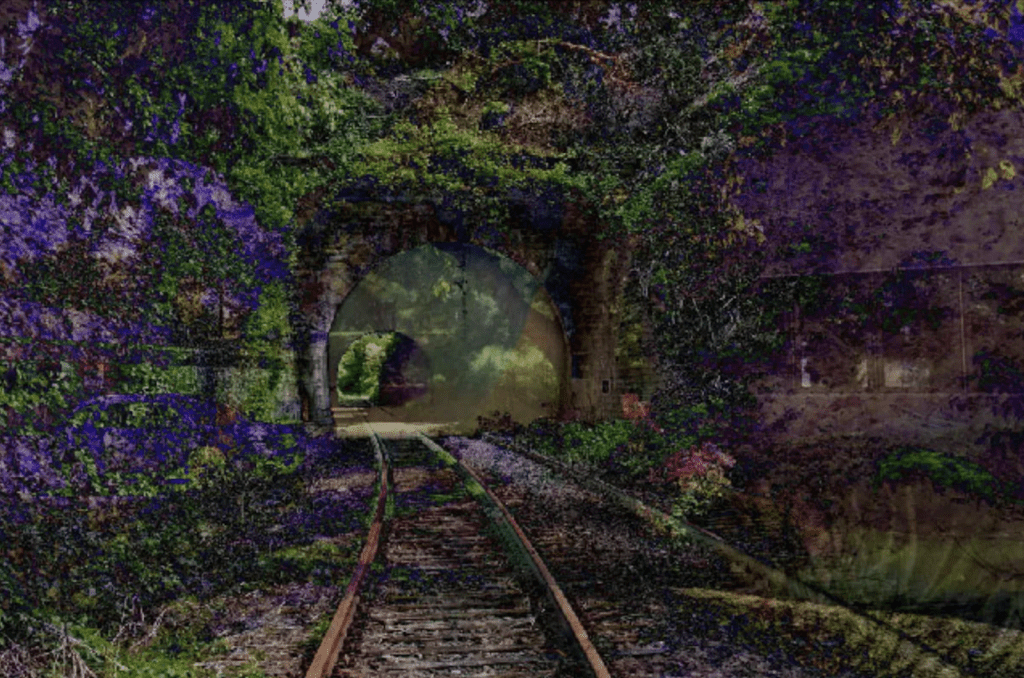A case over the availability of copyright protection for artificial intelligence-generated artwork is headed before a U.S. appeals court. In a notice lodged on Wednesday, Stephen Thaler alerted the U.S. District Court for the District of Columbia that he is appealing its August 18 decision, in which it held that an artwork created by AI is not eligible for copyright registration, to the U.S. Court of Appeals for the District of Columbia Circuit. As first reported by TFL, Thaler – who sought to register the AI-generated artwork, “A Recent Entrance to Paradise” with the Copyright Office – is appealing the D.C. court’s grant of summary judgment in favor of Shira Perlmutter and the Copyright Office and its denial of his own summary judgment motion this summer.
The case got its start in June 2022 after the U.S. Copyright Office (“USCO”) refused to green-light Stephen Thaler’s application to register an AI-created artwork, prompting the DABUS inventor to file suit against the USCO and Register Shira Perlmutter. According to Thaler, the plain language of the Copyright Act “does not restrict copyright to human-made works, nor does any case law,” and thus, the USCO erred in denying him a registration, “mistakenly rely[ing] on dicta, predominantly from cases predating even the existence of modern computers, together with inappropriate reliance on a technical report that pre-dates autonomously creative AI.”
In a memorandum opinion in August, Judge Beryl A. Howell of the U.S. District Court for the District of Columbia sided with Perlmutter and the USCO (which filed a cross-motion for summary judgment) on the basis that “U.S. copyright law “protects only works of human creation,” and AI-generated creations fall outside of such bounds. In considering Thaler’s application for a copyright registration for the artwork, “A Recent Entrance to Paradise,” which Thaler represented as being created without any human involvement, Judge Howell stated that the USCO was correct to conclude that “this particular work will not support a claim to copyright” because the work “lack[s] human authorship and thus, no copyright existed in the first instance.” The USCO “did not err in denying the copyright registration application presented by [Thaler],” according to the court, as U.S. copyright law “protects only works of human creation.”
As Loeb & Loeb’s David Grossman and Keane Barger stated in a note this summer, the court concluded that the author must be human, for three primary reasons …
First, the Copyright Clause of the U.S. Constitution was adopted to incentivize the creation of unique and original works of authorship. Nonhuman actors, unlike human authors, require no financial incentive to create. “[C]opyright was therefore not designed to reach” artificial intelligence systems.
Second, the Copyright Act of 1909 provided that only a “person” could “secure copyright” for a work. The court found that the legislative history of the Copyright Act of 1976 is devoid of any indication that Congress sought to extend the concept of authorship to nonhuman actors. To the contrary, the congressional reports stated that Congress sought to incorporate the “original work of authorship” standard “without change.”
Third, case law has “consistently recognized” the human authorship requirement. In the U.S. Supreme Court’s 1884 opinion in Burrow-Giles Lithographic Co. v. Sarony, the Court, in upholding the constitutionality of an amendment to the Copyright Act covering photographs, found it significant that the human creator, not the camera, “conceived of and designed the image and then used the camera to capture the image.”
TDLR: Must that originator be a human being to claim copyright protection? “The answer is yes,” Judge Howell asserted, noting that “the understanding that authorship’ is synonymous with human creation has persisted even as the copyright law has otherwise evolved.”
THE BIGGER PICTURE: As Judge Howell stated in her opinion, we are “undoubtedly … approaching new frontiers in copyright as artists put AI in their toolbox to be used in the generation of new visual and other artistic works. The increased attenuation of human creativity from the actual generation of the final work will prompt challenging questions regarding how much human input is necessary to qualify the user of an AI system as an ‘author’ of a generated work, the scope of the protection obtained over the resultant image, how to assess the originality of AI-generated works where the systems may have been trained on unknown pre-existing works, how copyright might best be used to incentivize creative works involving AI, and more.”
With such challenging questions in mind, on August 30, the USCO published a notice of inquiry seeking public comments by October 18, 2023 on “the use of copyrighted works to train AI models, the appropriate levels of transparency and disclosure with respect to the use of copyrighted works, and the legal status of AI-generated outputs” not only to inform its study and help it assess whether legislative or regulatory steps in this area are warranted.
The case is Stephen Thaler v. Shira Perlmutter, et al., 1:22-cv-01564 (DDC).











